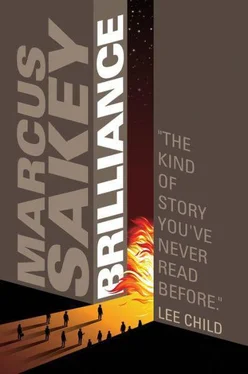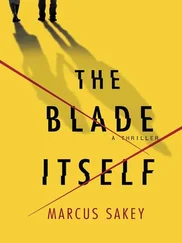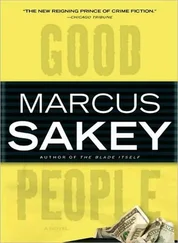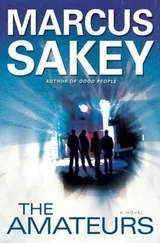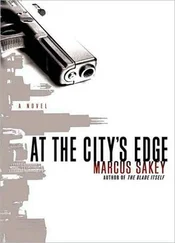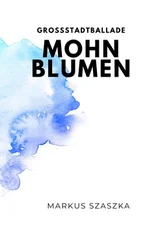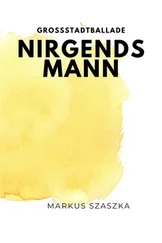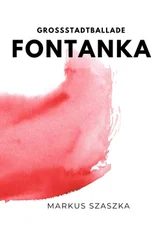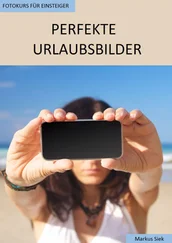That was all he had to do.
Pull the trigger!
He tried to speak, but only raw sound came out.
“Haven’t you?”
Cooper said, “The video is fake.”
“Yes.”
“You were never at the Monocle.”
“I was, actually. Half an hour earlier. I met Senator Hemner. I had a gin and tonic, he had four scotches. He agreed to support some changes to a piece of legislation, an early bill limiting testing of gifted. I thanked him, and I left.”
Take the shot take the shot take the shot take the…
“Look at me,” Smith said. “I know you can tell when someone is blatantly lying to you. Am I lying?”
A thousand times he’d watched that massacre. Looked for every clue, for any hint that could lead him to the man who had perpetrated it. He’d noticed the red light, but not that it should have been blocked. And how would he? It was only when compared to another version that it even seemed odd.
His version could be a fake. He’s had time to do that, nothing but time—
But the official version is the one with the problem.
“There’s more,” Smith said. “A lot more. But you’re going to have to put that down to hear it.”
“Nick,” Shannon said, her voice low but firm, tinged with a note of hope, maybe, or regret for something that hadn’t happened yet but might. “Please.”
He glanced at her. Saw that she would shoot him. Saw that she didn’t want to.
A sudden wave of exhaustion swept him. A sense that the props that held him up had been kicked out.
But if this is true, it…
He stopped the thought. But lowered the gun.
“Thank you,” Smith said.
“Fuck you,” Cooper said.
“Fair enough. I’d feel the same, in your position.”
Shannon said, “Cooper, how about you set the gun on the table? I’ll set mine down, too.”
He looked at her. She was back to calling him Cooper, he noticed, though it had been Nick a moment before. Funny, only Natalie and Drew Peters called him Nick. And now Shannon, exactly twice.
“How about,” he said, “you go first?”
He waited for her to look at Smith. Told himself that if she did, he would snap the gun up and fire, execute his target.
Shannon bit her lip. Her eyes never left his.
She dropped the barrel of the gun, let it dangle from one hand.
Huh.
Like a man in a dream, Cooper figured what the hell, set the safety, then tossed the gun on the table. What was the worst that would happen? They’d kill him?
They already have.
The thought came unbidden, a voice in a dark room. And just what the hell did it mean? He didn’t know.
“Okay,” he said. Trying for something like casual, but not sure he’d hit it. “Fine. Let’s talk.”
Smith seemed almost to sag, the tension streaming out of him. “Thank you.”
“You weren’t sure I wouldn’t kill you, were you?”
“No. It was a risk. Calculated, but a risk.”
“Why take it?”
“I wanted to meet you. No reward without risk.”
“What did you mean when you said you weren’t John Smith?”
“My dad’s last name wasn’t Smith. My mother never named me John.”
“I know, you got it in the academy, boo-hoo. But you—”
“Kept the name they gave me. Yeah. Remember how in the civil rights days, Malcolm X used to talk about giving up his slave name? Claiming his own? Well, I’ll do the same, as soon as people like me aren’t slaves. Right now, I want to remind everyone that I am what they made me.”
“You’re a terrorist.”
“I’m a soldier on the losing side. But the John Smith you’ve chased, the monster that kills children, who murdered seventy-three people in the Monocle, he’s not me. That John Smith wasn’t born. He was created. Because he served someone’s purpose.”
Cooper could feel his gift surging, patterning, building from data. The same way it always did, the way he couldn’t control any more than someone could choose not to be able to think. As always, the intuitive part of it was leaping ahead, building from the pattern, and he wanted it to stop, because if that was true, if this was true—
“ If the video is fake,” he said, knowing it was but not wanting to say it out loud, not sure of the reasons, “then who faked it?”
“Wrong question,” Smith said. He slid a hand toward his pocket, froze, said, “I could use a smoke. You mind?” He didn’t wait for a reply, but did move slowly, pulling out the pack and matches. Cooper catalogued the room, remembered the ashtray on the side table. So why had he stepped out before—
Because he wanted you to see.
He knew you were out there, and he gave you a way in.
Smith continued, lighting the cigarette around his words. “It’s not who faked the video,” snap, puff, exhale, “it’s who planned and executed the massacre. It’s who recruited, organized, and armed a methodical, highly skilled hit team and sent them to murder seventy-two innocent civilians and a senator. Faking the footage was just the cover-up. And the payoff.”
It was obvious and new at the same time, a paradigm shift that altered the whole world. Not just a faked video, but an orchestrated massacre. His gift filled in the pattern, dancing with new data— stop .
“Okay, so who…”
Smith walked around the end of the couch, flopped down on it. He ashed the cigarette and gestured to the opposite chair. Cooper ignored him. Smith said, “You play chess?”
“No.” He did, but not the way Smith meant. No one played the way Smith meant.
“The secret to the game is that beginners—actually, intermediate players, too, and sometimes masters—they tend to look at just the one side. But the trick to chess is to be paying more attention to what the other side is doing.”
“Okay.”
“Right,” Smith said. “Get to it. Fine. So, what did the Monocle accomplish?”
“It…a declaration of war. The murder of a senator who opposed you.”
“There are plenty of people who hate abnorms a lot more than Hemner did. And why would I want to declare war? When I was fourteen, I played three simultaneous games of chess against three grandmasters, and won them all. What are the odds that with no chance of victory, I declare war? No, you’re still thinking with your side of the board. Who benefited from the massacre?”
You, Cooper wanted to say, but found that the word stuck. How exactly had Smith benefited? Before the Monocle, Smith had been an activist, a controversial figure but a respected one, and free. Afterward he became the most hunted man in America. He’d had to abandon his whole life, to live for years as a fugitive with a target on his back.
“There you go. You’re getting it.”
“So what, you’re not just a strategic genius, you’re a reader, too?” The old smart-ass side coming out.
Smith shook his head. “I just know people. What happened after the Monocle?”
“You know what happened.”
“Cooper,” Shannon said. “Come on.”
He glanced at her, couldn’t untangle her expression. To her, he said, “Fine. I’ll play. After the Monocle, John Smith became a national figure. A terrorist. He was hunted from one end of the country to the—”
“Yes.” The look John Smith gave him was sad and warm at the same time, like a friend delivering bad news. “Yes. By whom?”
If this is true, it means that…
“No. I don’t believe it.”
Smith said, “Don’t believe what, Cooper? I haven’t told you anything.”
— Drew Peters, the day he recruited you. Saying that the program was extreme, but that it was necessary.
The early days of Equitable Services, working out of the paper plant. The constant rumors of getting shut down. The limited funding. The investigation. The threat of a congressional subcommittee.
Читать дальше
